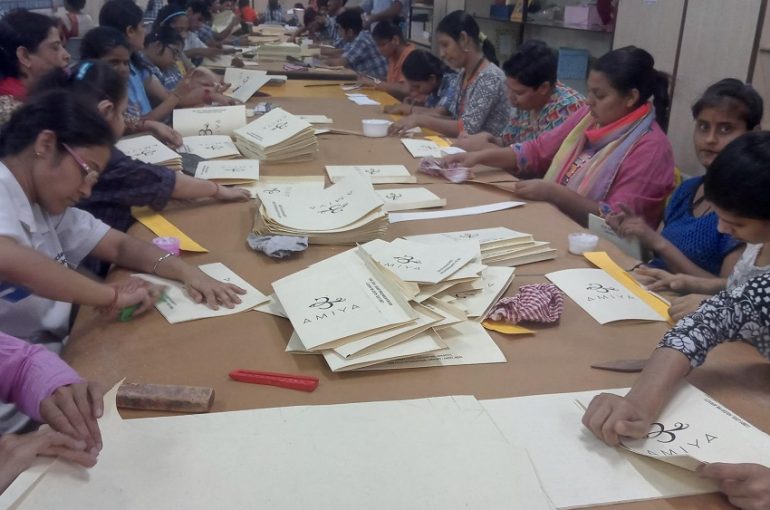Open Employment Opportunities for People with Disabilities (PwDs) & Challenges
Open Employment Opportunities for People with Disabilities (PwDs) & Challenges

Just like the right to education, the right to work is also a fundamental right. A person’s work becomes his identity and it is also essential for an individual’s dignity. It is also a very big part of one’s human right. The right to work is directly linked to the acceptability of a person in a community. However, if the person in question has some disability, things change drastically. For people with disabilities, the real challenge is to explore their ability to work in any field or train them according to their capabilities – to make them part of the working population.
Scenario in India
In India, it is estimated that disabled people constitute around 4-5% of the population. Another World Bank report indicates that between 4 to 8% of India’s population comes under the category of differently abled. In total it is a huge part of the population that is ready to work as per their competencies but either they are not skilled adequately or are a victim of severe discrimination. Despite a huge population of disabled people constituting a significant part of the population, their prospects for meaningful employment largely remain unmet.
Skill development
It is estimated that there are approximately 5 to 5.5 million disabled people in the age bracket 12-24 years. It is a huge segment of the untapped labor force. With the government’s initiatives like Sarva Shiksha Abhyan that focuses on inclusive education, the number of educated persons with disability is gradually increasing. In addition to that, assistive devices and technological advances skilling, this population segment have become easier. Such initiatives are bringing positive changes in society. It is making them even more acceptable in society and they are better equipped to join the mainstream workforce.
Employment
Various organizations working with disabled people propagate a strong role of the companies employing disabled people in their growth and providing them a platform to live an independent life in society. However, there are several attitudinal barriers in providing employment opportunities:
- It is assumed by the employers that other workers may react negatively if people with disabilities are hired.
- It is people with disabilities that often shy away from even applying for certain jobs. They fear social stigma and adverse reactions from potential co-workers.
- At a certain period, people with disabilities reach a development plateau where they are unable to learn new things or are not comfortable to perform further complex assignments.
- They are also not able to undertake assignments with greater responsibilities due to their disabilities.
- Another challenge is for it becomes difficult for people with disabilities to adjust to the fast pace of the environment of the companies.
- Also, people with disabilities have limited interaction with other people in the organization.
These are the challenges a person with disability faces, however, there is a huge segment that of people with intellectual challenges. For this group, opportunities become more narrow and they face a lot more prejudices. Companies must promote sheltered workshops for such people that would help them acquire suitable skills.
People with intellectual challenges are most comfortable in jobs that are repetitive and this is where companies can come forward in providing adequate training and suitable employment opportunities. A sheltered workshop model can be created within their workplaces providing a comfort zone, where they can work under the supervision of rehabilitation professional.
Experts point out that there are many reasons that favor the employment of people with disabilities – as there is less attrition, higher productivity and along with being loyal to the company, they are always ready to learn. Companies need to be sensitized and made aware of the needs and requirement of this workforce. Also, adequate policy changes can help people with disabilities get vocational rehabilitation.
There is an urgent need to recognize the needs and requirements of the physically and mentally challenged. Serious efforts need to be made to include them as productive members of the community so that they can live a life worth living with dignity.
Dr. Vandana Sharma
(Director cum Principal)
Mata Bhagwanti Chadha Niketan
(charitable school for children with special needs)
Visit us at www.mbcnschool.org
A-12, Sector-132,Next to Genesis Global School,
ExpressWay,Noida,U.P.
PH:9711000832, 9810772167
E mail – mbcn_vandana@yahoo.co.in
